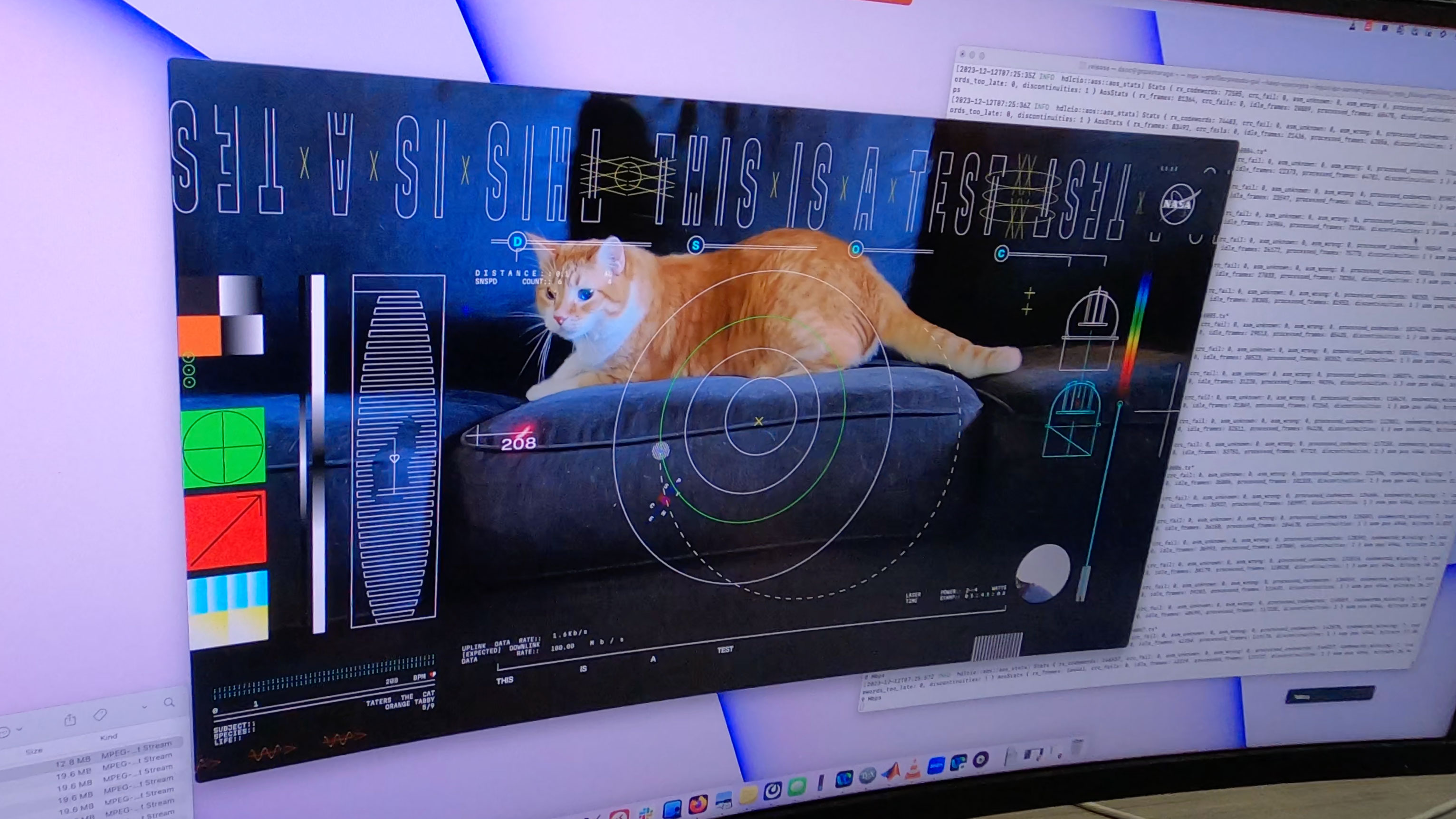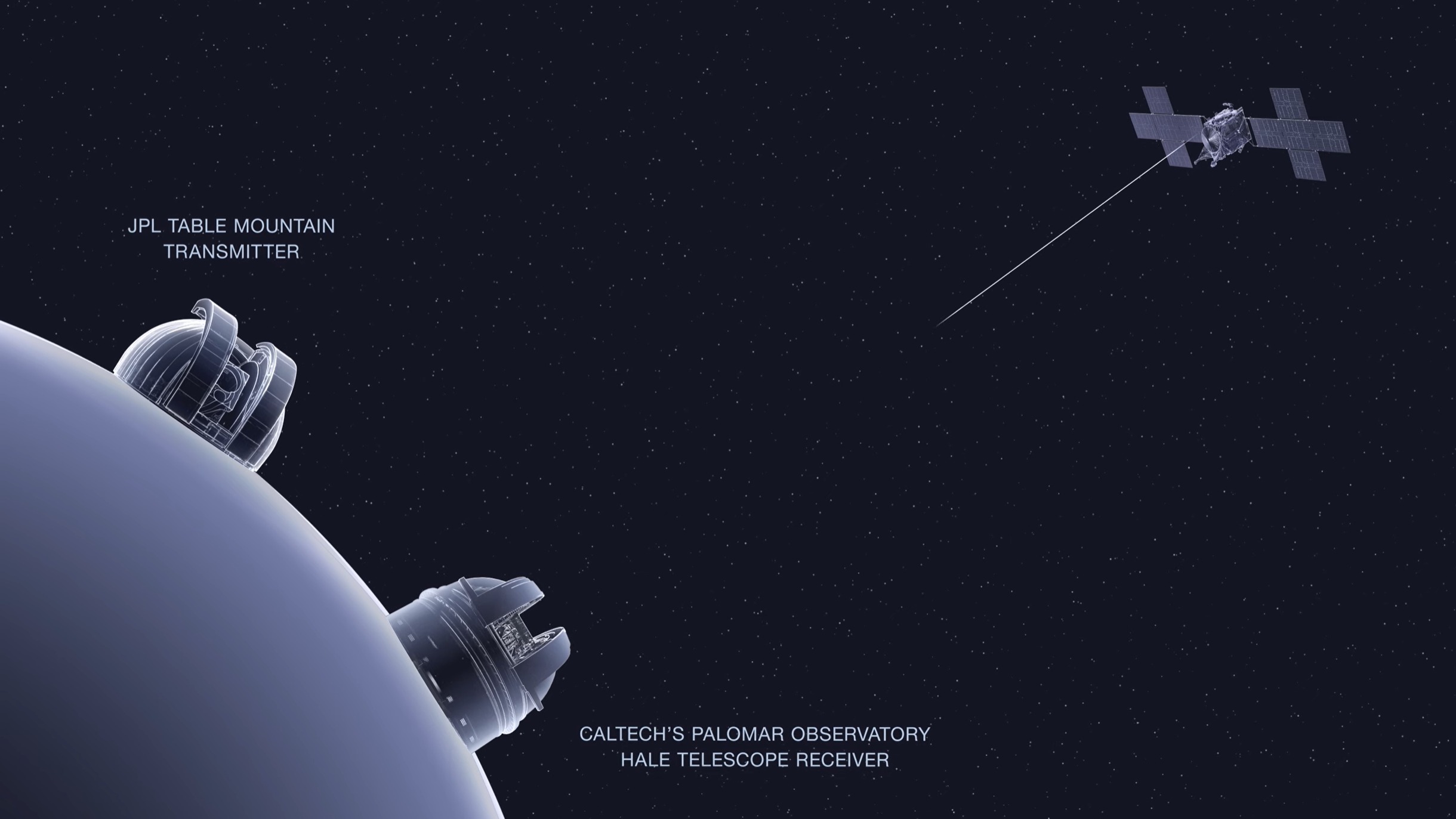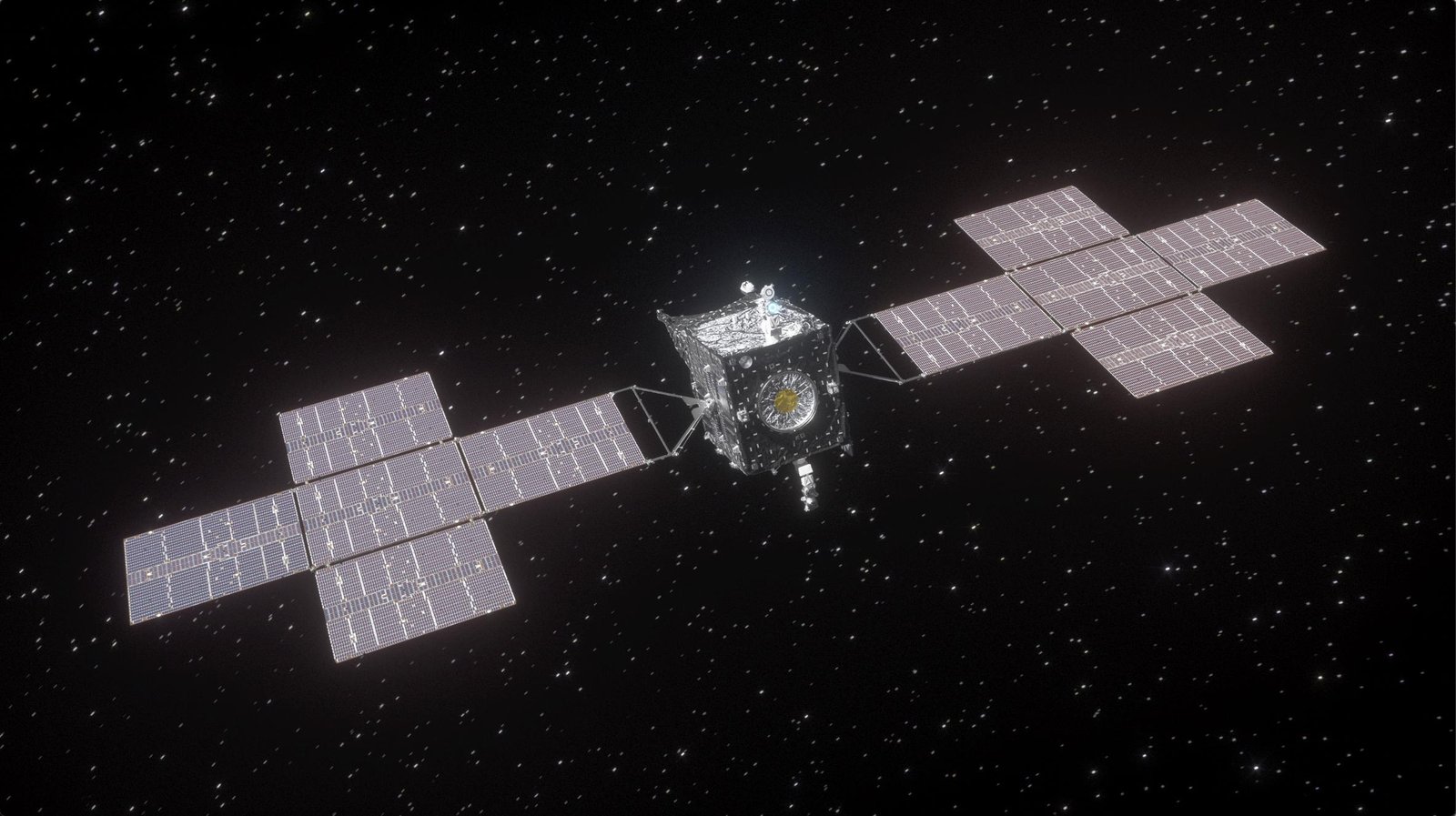
Humanity has demonstrated its full potential, using incredible feats of engineering and orbital dynamics to send a video of a cat named Taters to Earth from deep space.
It has long been accepted that cat videos represent the peak of human creativity. The Deep Space Optical Communications (DSOC) experiment conducted by NASA and its Jet Propulsion Laboratory (JPL) reinforced that fact on Dec. 11 when it beamed an ultra-high definition streaming video of Taters chasing a laser pointer from 19 million miles (31 million kilometers) away.
The experiment took place aboard NASA's Psyche spacecraft currently on its way towards 16 Psyche, a curious metal asteroid in the main belt out between Mars and Jupiter, after launching atop a SpaceX Falcon Heavy rocket on Oct. 13.
Despite being an adorable way to demonstrate this groundbreaking technology, NASA leadership says the experiment also lays the groundwork for deep space exploration. "Increasing our bandwidth is essential to achieving our future exploration and science goals, and we look forward to the continued advancement of this technology and the transformation of how we communicate during future interplanetary missions," NASA Deputy Administrator Pam Melroy said in a statement.
Related: Psyche spacecraft finds 'first light' while zooming to metal asteroid (image)

The video of Taters was beamed using a new JPL-developed instrument known as a flight laser transceiver. The instrument beamed the signal in near-infrared laser light to the Hale Telescope at the California Institute of Technology's Palomar Observatory.
It took 101 seconds for the signal to reach Earth while transmitting at a speed of 267 megabits per second (Mbps). By comparison, Speedtest.net reports that the average broadband speed in the United States is around 219 Mbps, and around 92 Mbps in the United Kingdom.
"Despite transmitting from millions of miles away, it was able to send the video faster than most broadband internet connections," Ryan Rogalin, lead scientist for the project's receiver electronics, said in JPL's statement. "In fact, after receiving the video at Palomar, it was sent to JPL over the internet, and that connection was slower than the signal coming from deep space. JPL's DesignLab did an amazing job helping us showcase this technology — everyone loves Taters."

The flight laser transceiver instrument conducted its initial "first light" test in November, sending a signal to Earth from 10 million miles (16 million km) away. Most of the signals it has used in testing so far have been random packets of information, but JPL scientists wanted to inject a bit of fun into this milestone demonstration.

"One of the goals is to demonstrate the ability to transmit broadband video across millions of miles. Nothing on Psyche generates video data, so we usually send packets of randomly generated test data," said Bill Klipstein, DSOC project manager at JPL. "But to make this significant event more memorable, we decided to work with designers at JPL to create a fun video, which captures the essence of the demo as part of the Psyche mission."
Psyche is currently on its way toward a fly by of Mars in 2026, during which time the spacecraft will take a few images of the Red Planet. From there, the probe will make its way toward its main target, 16 Psyche, which it should reach in 2029.







